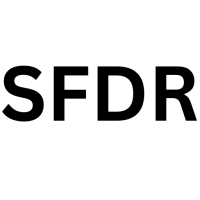Summary
Cut through the green tape
We don't push agendas. At Net Zero Compare, we cut through the hype and fear to deliver the straightforward facts you need for making informed decisions on green products and services. Whether motivated by compliance, customer demands, or a real passion for the environment, you’re welcome here. We provide reliable information—why you seek it is not our concern.
Details
- European Union
Deep dive
Background
Introduced in March 2021 by the European Commission under the European Union’s Sustainable Finance Action Plan, the Sustainable Finance Disclosure Regulation (SFDR) is a landmark policy aimed at standardizing sustainability reporting in the financial sector. The regulation is codified in Regulation (EU) 2019/2088 and builds on earlier EU efforts like the Non-Financial Reporting Directive (NFRD, 2014), which required limited ESG disclosures from large companies. SFDR is a sector-specific regulation targeting financial market participants (FMPs) such as asset managers, insurers, and pension funds. It is aimed at preventing "greenwashing" while ensuring that investors have comparable data on sustainability risks and impacts. This aligns with the EU’s broader goal to redirect capital toward environmentally sustainable activities under the European Green Deal. The Sustainable Finance Disclosure Regulation (SFDR) is administered at multiple levels. European Supervisory Authorities (ESAs) - The European Banking Authority (EBA), European Securities and Markets Authority (ESMA), and European Insurance and Occupational Pensions Authority (EIOPA) - oversee SFDR implementation and issue regulatory guidance. The European Commission sets the regulatory framework and provides clarifications on SFDR requirements while National Competent Authorities (NCAs) in each EU member state enforces SFDR compliance within its jurisdiction, including imposing penalties for violations.
Emissions Reporting Requirements Under SFDR
SFDR requires the submission of detailed disclosures on how financial products integrate sustainability risks, including carbon emissions data. Firms must classify products into Article 6 (no ESG focus), Article 8 (also called "light green"), or Article 9 (dark green, objective-led) and disclose:
Principal Adverse Impacts (PAIs): Annual reporting on 14 mandatory ESG indicators, including Scope 1-3 and total GHG emissions of investee companies.
Entity-Level Disclosures: How sustainability risks are embedded in investment decisions.
Reports must be available on publicly accessible platforms such as on company websites. To enhance data comparability, disclosures must cover the reference period from January 1 to December 31 of the prior year and be published by June 30 annually. Accordingly, reports for 2024 are due by 30 June 2025.
Covered Entities
The SFDR applies to financial market participants such as asset managers (with at least 500 employees), insurers, pension funds, and EU-based banks offering investment products. It also applies to financial advisors providing sustainability-related advice. While there are no official data on exactly how many firms are affected by the SFDR, it clearly governs most major financial institutions in the EU. Moreover, non-EU firms marketing funds in the EU must also comply, extending the global reach of the SFDR. Exemptions exist for micro-enterprises (<500 employees) unless they offer ESG products.
Penalties for Noncompliance
The SFDR does not directly establish penalties for non-compliance. Instead, enforcement occurs through existing supervisory frameworks, with EU regulators applying their standard oversight powers to asset managers. Entities are also subject to enforcement procedures from national financial regulatory authorities who with specific fines and other penalties for noncompliance. For example, in October 2024, Luxembourg’s financial regulator (CSSF) imposed a €56,500 fine on Aviva for non-compliance with SFDR Article 8 requirements across five sub-funds. The penalty followed a thematic on-site inspection (3 October 2022 – 11 May 2023), which revealed persistent failures in Aviva’s governance framework. Article 8 funds must promote environmental and social characteristics, a standard Aviva failed to meet in these cases. Earlier in 2022, Deutsche Bank and its asset manager DWS were raided by German authorities over greenwashing allegations.


